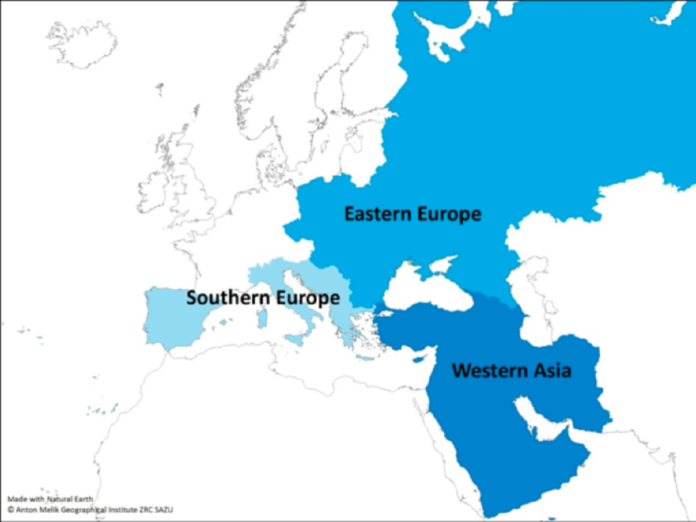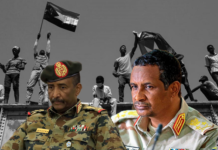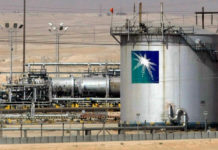Turkey is a large state with a huge population, consumer market, investment capabilities and a geopolitical location in between the Balkans, the Caucasus, the Middle East and the Arabian Gulf.
The country was exposed to a series of severe economic crises throughout the 1960s and 1980s. Finally, in the mid-1990s, a bold and comprehensive economic reform plan was implemented, with successful returns to the economy. However, the actions of its new political administration are leading Turkey backwards.
The Turkish economic decline since 2012 is based on geopolitics. The story began with the development of a national strategy aimed at realising the dream of joining the European Union. Yet, as the plan failed after years of effort and investment, a new strategy formulated the shift towards targeting the leadership of the Muslim world. Yet, with Turkey’s foot getting deeper into aggressive disputes, and the economy backwards, it is time that Turkey needs to assess its foreign policy.
History of economic reform
Since the Treaty of Rome in 1957, which established the European Economic Corporation, Turkey has worked on joining the establishment. The first serious attempt was in 1987.
One of the reasons for the intransigence of the Europeans was the series of military coups, which had a severely negatively impacted the Turkish interior and exhausted its economy.
The economic reform and the treatment of the imbalances of the Turkish economy launched in 1994, during the reign of Prime Minister Tansu Ciller, the 22nd Prime Minister of Turkey, which took office between 25 June 1993 to 6 March 1996 and was the first woman to reach this post.
The reform plan was triggered by an agreement with the International Monetary Fund (IMF) for a $ 235 million for the first year and $ 225 million for the next year.
The following governments of Prime Minister Ecevit and Erbakan contributed to the application of the reform plan, whose success and credit goes to Schille, who launched the reform program and lead the preliminary crisis management over its worst stages, along with setting the solutions and taking the necessary hard decisions.
During the Turkish economic crisis, the inflation rate was very high and fluctuated between 60% -130%.
Interest rate had reached unreasonable limits, further more, it was unstable and fluctuated periodically, worse still, fluctuations were very sharp as seen in the graph
The reform extended for 10 years until 2004, when recovery and growth began to emerge, but IMF assistance continued until 2008 until total aid reached $ 46 billion. The exchange rate was released in 2001 and was then $1 = 1 to 1.5 lire.
Exports at the beginning of the reform plan stood at about $ 27 billion, in 2004 it reached $ 70 billion, while in 2008 it reached $ 180 billion.
Investments increased from $ 600 million in 1994 to $ 22 billion in 2008.
Revenues from tourism rose from $ 5 billion dollars in 1994 to $ 30 billion in 2008.
It is to be noted that the major leaps in the Turkish economy were achieved between 2002 and 2008, yet the economy built over years of reform is crumbling.
Transformation into the Strategy of "The Nostalgia of Othman Caliphate"
After the economic reform, development, growth and big leap in Turkey’s economy over the period of 1994-2008, the global financial crisis broke out, and the world’s economy plunged into stagnation and suffering and once the crisis ended latter in 2010/11, the world fell under the spell of the so-called Arab Spring.
Turkey's change of foreign policy began after the failure to join the euro, and moved to revive a history of an empire it denounced. Turkish media and marketing was directed towards Arab and Muslim youth to revive the Ottoman glory or the so-called "Nostalgia Caliphate"
Turkey’s involvement with the Arab Spring lead to a major deterioration in its foreign relations, that has worsened with many of its friends, particularly the neighbouring Arab countries, even the extended relations with its friends in Israel Europe and the United States became complicated.
After the failed coup in the summer of 2016 political repression deepened, thousands were arrested and the Turkish political scene grew wild. Further more, Turkey has pushed its military forces into northern Syria, northern Iraq and Qatar, Ignited further conflict with Greece and Cyprus.
Turkey has transformed into a country that suffers from 100% foreign policy problems rather than zero problems, (an ideology that was originally developed by the former Turkish Foreign Minister and Academic Ahmed Daudoglu who at the beginning of the Justice and Development Administration in 2003-2008 had 0% foreign policy problems), to a state of tension and political complexity that on a scale of 100 degrees, reached 90 degrees.
The economic impact of the policy of "The Nostalgia of Othman Caliphate"
As a result of all these problems, complexities and tensions of the internal and regional forces, the economy became in a difficult situation and under great pressure.
First: Currency
Since the beginning of the policy of nostalgia for the Ottoman caliphate, we have seen a collapse in the currency by 2.7 times from 1.2 lira to 4 lira against One US dollar.
More importantly this collapse is not the result of economic reform, if it were within the framework of reform it would have been justifiable and positive, such as the Egyptian situation. But this decline was caused by the above-mentioned political and geopolitical agenda that has strongly affected the economy, investment, trust of financiers, institutions, unemployment, industrialisation, etc.
Second: The credit rating
The Turkish economy's ability to pay its debts and meet its obligations has been reduced; the three largest institutions in all the latest reports have reflected negative indicators, with a negative outlook and warnings of problems and exposure of the economy to crises and shocks.
Third: Trade Balance
The deficit between imports and exports increased, with a rising imports trend that is moving much faster than exports, reaching in 2017 38% about $80 billion. Although, Turkish officials stated that 2018 would be much better than 2017, which was negatively affected by the failed coup, yet the figures from January 2018 are so far disappointing, with a huge trade deficit of 108% compared to the same month of 2017.
Fourth: The debts
Turkish foreign debt reached a figure of over $440 billion, compared to $120 billion at the beginning of the rule of the justice and development over office.
The total debt ratio reached about 100% of GDP
Why these 4 indicators?
There are many other indicators that can be measured and presented, some of which are positive, not all of which are negative and in regression, but these four indicators are very important, dangerous and measure the impact of the economic policy in process.
For example, Turkey's GDP rose from about $200 billion in 2003 to $800 billion in 2017, growth in the third quarter of 2017 rose to 11% and the media and the Turkish government celebrated this as a new Ottoman economic achievement.
Apparently it seems to be a positive and good sign, yet
First, if we look at any country’s output in 10 years, you will find it has increased – except in cases where there is a civil war, a severe economic crisis or a radical economic reform in process.
Second, the increase in gross output if not accompanied by an equivalent increase in investments, credit rating and reserves is false and an illusion. Specially, when marked with higher unemployment and inflation, as well as, deterioration in the climate of business and stability of its political status.
If we look at the development of output for these weak economies over a decade (2000/2010), you will note the following increases:
• Ethiopia from $ 8 billion to $ 30 billion
• Eritrea from $ 0.7 billion to $ 2.1 billion
• Djibouti from $ 0.6 billion to $ 1.1 billion
• Guinea from $ 1.4 billion to $ 16 billion
Gross Domestic Product = Consumption + Government Expenditure + Investment + Exports – Imports
This means that if this country increased its government spending, output would increase. If people's consumption of goods and services increased, the output would increase. Any of these 4 elements would easily affect output.
Accordingly the four indicators reviewed, reflect the fact that a deteriorating credit rating, a trade deficit increasing with a decreasing currency value, lower investments, increased unemployment and a politically unstable country in war do reflect in total a deteriorating economy.
The IMF ... Warnings do not stop
The final statement of the IMF's mission, who completed their work in Turkey on last February 16, stated the following;
Despite the strong recovery of economic growth in Turkey (higher output), the production gap, the fact that inflation rate is much higher than the set target, and the current account deficit remains wider implies a high risk of economic deterioration.
The main weakness lies in the need for a larger external financing requirements, the increased reliance on short-term capital flows and exposure to foreign exchange risks.
Cash reserves continue to cover only half of Turkey's total external financing needs.
Political factors affecting the Turkish economy
• Tense in relations with the United States, Europe in general specially Germany, France, Greece and Cyprus.
• Turkish-Russian cooperation and its impact on relations with the West
• Turkish-Iranian cooperation and its impact on relations with the West
• Interventions in Syria, Iraq and Libya, especially lately military intervention in Syria and its expected expansion further more.
• Deep interference in the Gulf crisis
• Full deterioration of relations with Egypt
• Internal repression and continuing arrests
In Conclusion
The current political instability and regression of Turkey’s relations with its neighbouring countries and partners is causing havoc in realising a sustainable economy that can attract investment.
All international financial and economic institutions, are sending out a loud and clear message that Turkey needs to stop tampering in the region, and concentrating in their affairs and reform to avoid further bleeding of the economy and reduce the rising risks to reassure investors and demonstrate their seriousness in amending their foreign policy back to a zero per cent foreign policy problems by primarily denouncing the Caliphate dream and branching away from regional conflicts to avoid slipping into a wider gap of economic distress beyond which it may require a decade or more to re-bounce.
By : Mohamed Negm












